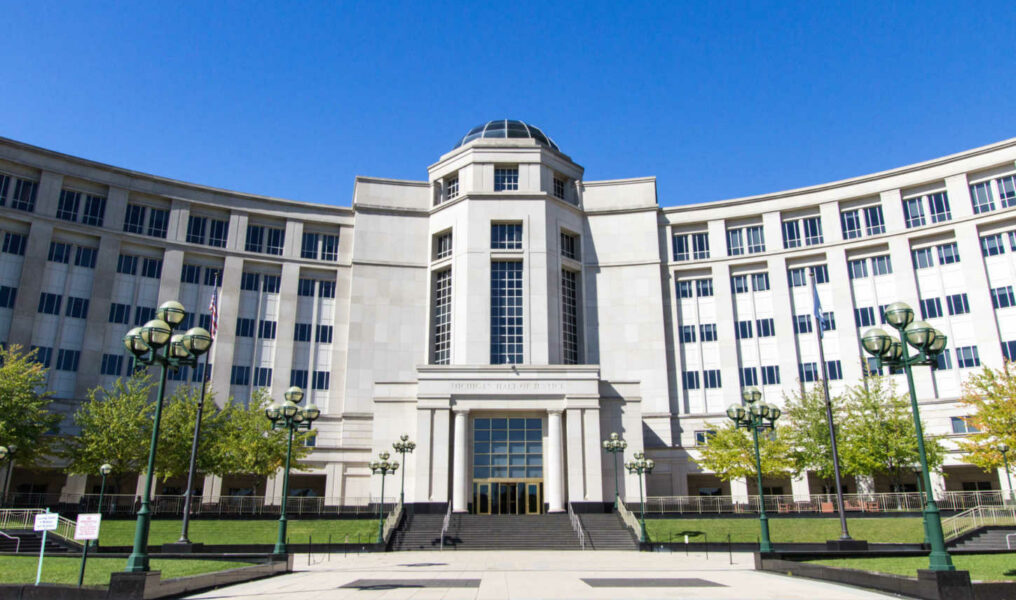When current Michigan Supreme Court Chief Justice Bridget Mary McCormack campaigned for reelection last year, she said she wouldn't consider it a win unless newcomer Elizabeth Welch won, too. The double victory meant that the court would have a 4-3 Democratic majority for the first time in years.
Now, the Court is exciting LGBTQ+ folks across the state after announcing last week that it would bypass the appellate court and hear an appeal of Rouch World LLC v. Department of Civil Rights, a case that could amend the Elliott-Larsen Civil Rights Act to include sexual orientation and gender identity.
Rouch World is a 300-acre park and wedding venue in Sturgis. In 2019, the owners of the park refused to host a same-sex wedding ceremony citing religious beliefs and the fact that Elliott-Larsen does not protect individuals on the basis of sexual orientation. Rouch World sued after learning that the Michigan Department of Civil Rights had opened an investigation.
The state Court of Claims ruled in favor of Rouch World in December and Michigan Attorney General Dana Nessel vowed to appeal. But she did not know at the time that the appeal would head straight to the Supreme Court. If the high court rules favorably, it would be a landmark decision. Michigan's LGBTQ+ community has long lobbied the state legislature to amend Elliott-Larsen on its own. But the body, controlled by Republicans, has been loath to touch the matter.
"I think it's important to note that for the first time in decades there's a progressive majority on the Michigan Supreme Court," said Jay Kaplan, staff attorney for the ACLU of Michigan's LGBT Project. "So we're hopeful that the Supreme Court is going to [rule in our favor] and we're going to have a decision saying that gay and lesbian people are covered under state law."
Now, the Supreme Court has given until Oct. 25 for briefs to be filed. The Court has also invited several groups to file amicus briefs in the matter. The groups include the ACLU of Michigan, the ACLU National, Affirmations LGBTQ Community Center, Equality Michigan, Freedom for All Americans, Human Rights Campaign, LGBT Detroit, National Center for Lesbian Rights, OutCenter of Southwest Michigan, OutFront Kalamazoo, Ruth Ellis Center, Southern Poverty Law Center, Stand With Trans and Tran Sistas of Color Project.
"It's terrific for the LGBTQ community," said Trevor Thomas, president of Fair and Equal Michigan, the group that has been campaigning to either get the state legislature to amend Elliott-Larsen or get it on the ballot. "Many of us have been following the case and, as you know, a great number of groups, including Equality Michigan, for which I've been the chair of the board for some time, did amicus briefs. Amicus briefs will be invited for the Supreme Court's arguments as well.
"I think that's terrific the groups can be engaged," Thomas continued. "We are all waiting to see if the court finally recognizes the inclusion of both sexual orientation and gender identity in Elliott-Larsen."
But while he waits, Thomas said the campaign continues.
"As the attorney general said at the LGBT Chamber of Commerce event, there are multiple paths and each path compliments the other. We, of course, fully support any path that brings protections to LGBTQ people in Michigan the fastest. We are mindful that, as we've said previously, that changing the law to expressly clearly include LGBTQ people is a critical step especially because we know that the court can change and have an all-new opinion any time in the future."
So what is the status of the campaign?
"We turned in signatures, 483,000, on Oct. 13 and we are pending before the Bureau of Elections and Board of State Canvassers for certification, which is a fancy way to say we can move forward to bringing the initiative to the legislature where they'll have 40 days to pass it out right or they could send it to voters in 2022."
Thomas, rather optimistically, is hoping for the former.
"I hope that by the Supreme Court taking the case lawmakers will see greater incentive and value to moving legislation forward immediately and finally recognizing LGBTQ people in our civil rights law."











